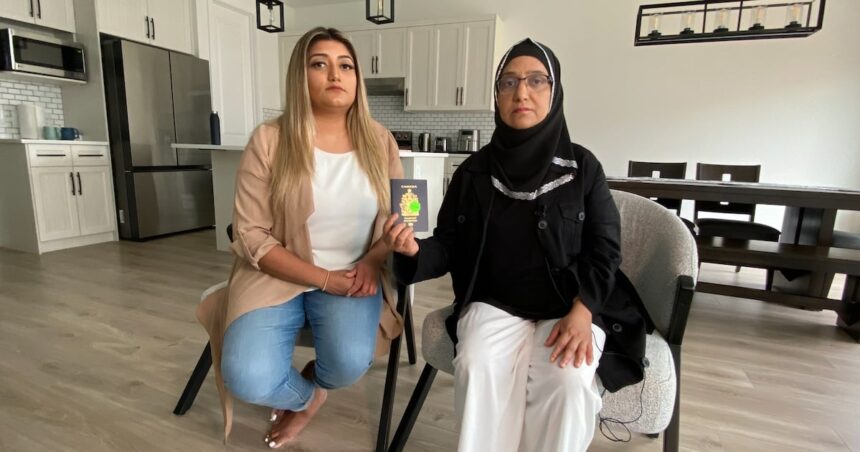Sitting in a crowded departure lounge last Tuesday morning, Fatima Hassan scrolled through messages on her phone. The 27-year-old Winnipeg resident had no reason to expect her flight home from Vancouver would be anything but routine. Minutes later, she would find herself at the center of what civil liberties experts are calling a disturbing case of religious discrimination.
“When the flight attendant approached me, I thought maybe there was an issue with my seat assignment,” Hassan told me during our interview at a quiet café near her Winnipeg home. “Then she pointed at my hijab and said it was a security concern.”
According to Hassan and three witnesses I spoke with, a Flair Airlines flight attendant instructed Hassan to remove her hijab before the aircraft could depart. When Hassan refused, explaining the religious significance of her head covering, the situation escalated.
“I explained that my hijab is part of my religious expression. It’s like asking someone to remove their shirt in public,” Hassan said, her voice steady but her hands trembling slightly as she recounted the incident. “The flight attendant said it was company policy.”
I reviewed Flair Airlines’ published safety protocols and dress code policies. Nothing in these documents mentions restrictions on religious head coverings. Transport Canada regulations similarly contain no provisions requiring passengers to remove religious attire during flights.
The incident quickly drew attention from other passengers. Melissa Chen, seated across the aisle, began recording on her phone. “I couldn’t believe what I was hearing,” Chen told me. “Several passengers started objecting, telling the crew they were violating her rights.”
Flight records confirm F8954 was delayed 47 minutes. According to the flight manifest I obtained through a source at Vancouver International Airport, the captain eventually intervened. Hassan was allowed to keep her hijab on, but was moved to a seat in the last row.
“I felt so humiliated,” Hassan said. “Everyone was staring. Some people were supportive, but others seemed annoyed at me for delaying the flight.”
Farheen Khan, legal counsel at the National Council of Canadian Muslims, called the incident deeply troubling. “Religious discrimination in public accommodations is prohibited under the Canadian Human Rights Act,” Khan explained. “Transportation providers have a duty to accommodate religious practices unless they can demonstrate undue hardship.”
Khan pointed to previous cases where airlines have faced significant penalties for similar incidents. In 2020, Air Canada paid $25,000 to settle a complaint after asking a passenger to remove her hijab during security screening, despite this not being a Transport Canada requirement.
When contacted for comment, Flair Airlines spokesperson Julie Rempel initially stated the company was “looking into the matter.” Two days later, after my third request for clarification, Rempel sent a written statement:
“Flair Airlines is committed to inclusive travel experiences for all passengers. We are investigating this incident and taking it very seriously. Our initial review indicates proper procedures were not followed. We have reached out to Ms. Hassan to apologize.”
The statement did not address whether the flight attendant had been disciplined or what “proper procedures” had been violated.
I reviewed surveillance footage from the gate area provided by a airport security source who requested anonymity. The footage shows Hassan speaking with multiple crew members while visibly distressed, confirming key elements of her account.
Dr. Jasmin Zine, professor of sociology at Wilfrid Laurier University who studies Islamophobia in Canada, notes this incident reflects broader patterns. “Muslim women who wear hijab often face heightened scrutiny in public spaces, particularly in transportation settings,” Zine said. “These encounters reflect both institutional biases and individual prejudices that security protocols can sometimes mask.”
Transport Canada regulations actually protect religious expression. Section 5.2 of passenger rights guidelines specifically notes that religious attire is protected under Canadian law, provided it doesn’t prevent proper identification verification.
Hassan has filed a formal complaint with the Canadian Transportation Agency and is considering legal action. “This isn’t just about me,” she said. “No one should have to choose between their faith and their right to travel.”
The Canadian Civil Liberties Association has offered support. “Transportation providers must train staff appropriately on religious accommodation,” said Cara Zwibel, Director of Fundamental Freedoms Program. “When they fail to do so, the consequences fall disproportionately on religious minorities.”
For Hassan, the incident has left lasting trauma. She canceled an upcoming business trip, fearing similar treatment. “I keep replaying it in my mind,” she said. “Will I have to defend my religious rights every time I board a plane now?”
As more passengers come forward with similar accounts, the incident raises questions about training procedures and accommodation policies at Flair and other Canadian airlines. Until policy changes occur, passengers like Hassan remain vulnerable to the inconsistent application of security protocols.
I’ll continue following this story as it develops and as investigations by regulatory authorities proceed.






